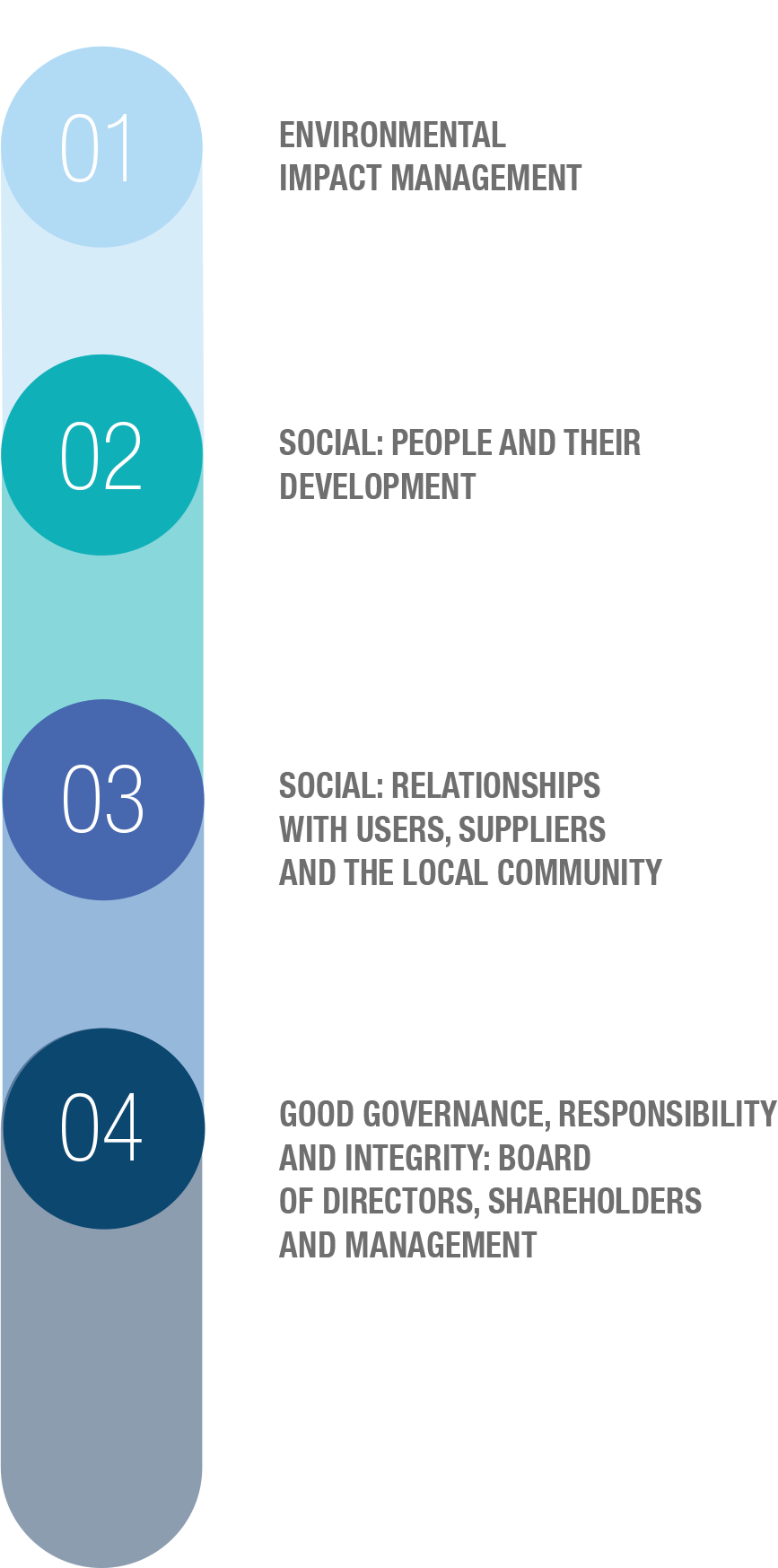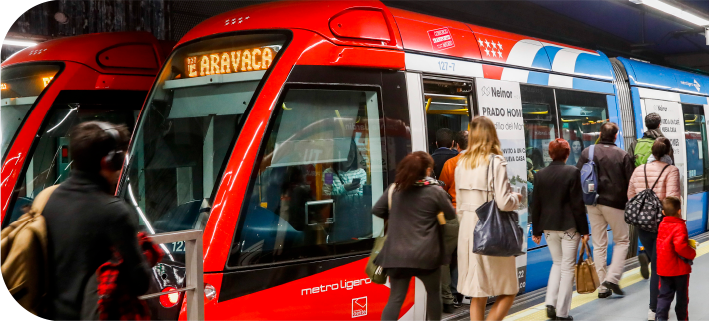MISSION
To offer a safe, punctual, accessible and sustainable mobility service.


To offer a safe, punctual, accessible and sustainable mobility service.

The search for excellence that enables us to be a national benchmark in the passenger transportation industry.

Professionalism, integrity, transparency, innovation, respect and pride in belonging to the organisation.

We are a responsible, sustainable mobility company that puts its daily effort into providing its passengers with an efficient, high-quality service.
For the last 16 years, we have maintained this commitment in all our actions to meet the demands of a population of more than 200,000 inhabitants, including residents and workers in the area.

We have a solid, comprehensive ethics management system that encompasses a code of ethics, values statements, principles and behaviour
guidelines. This system is designed to guide us and direct our actions, establishing a clear framework of ethical and responsible behaviour for
every member of our organisation.
Additionally, we have approved a new Strategic Sustainability Plan in line with our ESG policies, guided by the Board of Directors and shared
with all our stakeholders. This plan is constructed around four lines of action:
The responsibility for the implementation and scope of the objectives outlined in this plan lies with our General Management and our
Management Committee, responsible for carrying out the actions through the teams in their respective areas. We provide the necessary
information to ensure that our teams are properly trained and aligned with the ethical and sustainability principles established in this plan.


Our Integrated Management System is characterized by procedures designed to detect risks and opportunities. The main objective of these
processes is the minimization and, where possible, the eradication of negative impacts on our operations. Simultaneously, we seek to achieve
and maximize the positive impacts in various areas of our business activity.
This proactive approach contributes to strengthening the organisation’s resilience and maximizing its positive contribution to its business and
social environment.

Among the procedures for requesting advice and raising concerns
we have communication channels with our stakeholders, such as
complaints and claims mechanisms, as well as mechanisms for
receiving suggestions and concerns.
These communication channels play a crucial role in providing our
stakeholders with a direct avenue to express their concerns, provide
feedback, ask questions or raise any questions they deem relevant in a
fully confidential manner.
As part of our on-going improvement and adaptation process, during
this cycle we conducted an internal review of our stakeholder map. This
involved analysing and evaluating the information collected through
the aforementioned communication channels. The comments and
demands that our stakeholders communicated to us in the course
of our interactions are included in this analysis.
Reviewing the stakeholder map allows us to better understand their
perspectives, expectations and concerns. Integrating these elements
helps us adjust our strategies and operations in a way that is more
aligned with the needs of our stakeholders.
Regulatory compliance is a fundamental principle for MLO, and is part of our Integrated Management System. We can guarantee compliance with all legal requirements applicable to our activity but also with those to which we have voluntarily subscribed. Plus, regulatory compliance is reinforced by our code of ethics and as a result, during this period, we did not receive any complaints about activities, or any administrative, monetary or judicial penalizations of any kind.

We are a member of leading partnerships in the field of public transport, which reflects our commitment to excellence and sustainability in our industry. Among the associations we belong to are:
We are also a member of Forética, a leading organisation in sustainability and corporate social responsibility in Spain,in fact, we participated in its ‘Sustainable Cities 2030’ initiative; of the Association for Management Progress (APD) and the Spanish Maintenance Association (AEM).
